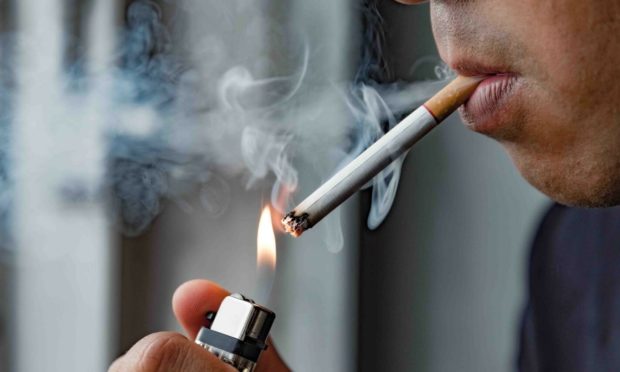Anti-smoking measures could save billions across the UK economy, according to a new report to mark today’s World Lung Cancer Day.
There are around 10,000 smoking related deaths every year in Scotland.
But the costs of smoking are about more than individuals’ health.
The sustainability of the broader healthcare system and the public purse should be the focus as governments aim to build up services following the pandemic, say the report’s authors.
While tobacco use has been declining in the UK for decades, 14.1% of UK adults still smoke.

And many former smokers are living with the long-term effects of smoking, such as cardiovascular conditions and cancer.
The Up In Smoke report, by specialist think tank International Longevity Centre UK (ILC), on the impact of longevity on society, finds:
- A typical lifelong smoker aged 30 can expect to lose about 10 years of life expectancy compared to someone who has never smoked.
- Men who have never smoked enjoy 5 extra years of life free from disability than current or ex-smokers, and this rises to 5.8 years for women.
- The health impacts of smoking limit many people’s ability to work – if current or ex-smokers had never smoked, overall earnings could be 1.9% higher, boosting the UK economy by £19.1 billion every year.
What more could be done to help?
ILC argue governments need to:
• Raise the legal age for purchasing tobacco to 21 (and gradually introduce further raises in the future).
• Reduce tobacco affordability by increasing UK tobacco tax each year in stages from the current level of RPI +2% to RPI +5%.
• Reduce the size of the illicit market by introducing a tobacco licensing system for retailers and wholesalers.
• Support smoking cessation programmes and behaviour change campaigns at local levels.
‘We need healthy people for our communities’
Prof Les Mayhew, Head of Global Research at ILC and Professor of Statistics at The Business School says: “It’s no secret smoking is bad for our health, but what is lesser known is it’s also bad for our economy.
“We need people to stay healthy for longer and despite a decline in smoking we are not out of the woods yet.
“The pandemic has shown smokers and ex-smokers are more likely to end up in hospital if they have Covid-19.
“Over the life course they work fewer years, are less productive and quit work sooner. Their later years are more likely to be marred by ill health which means less time for consumption, volunteering and community work.”
